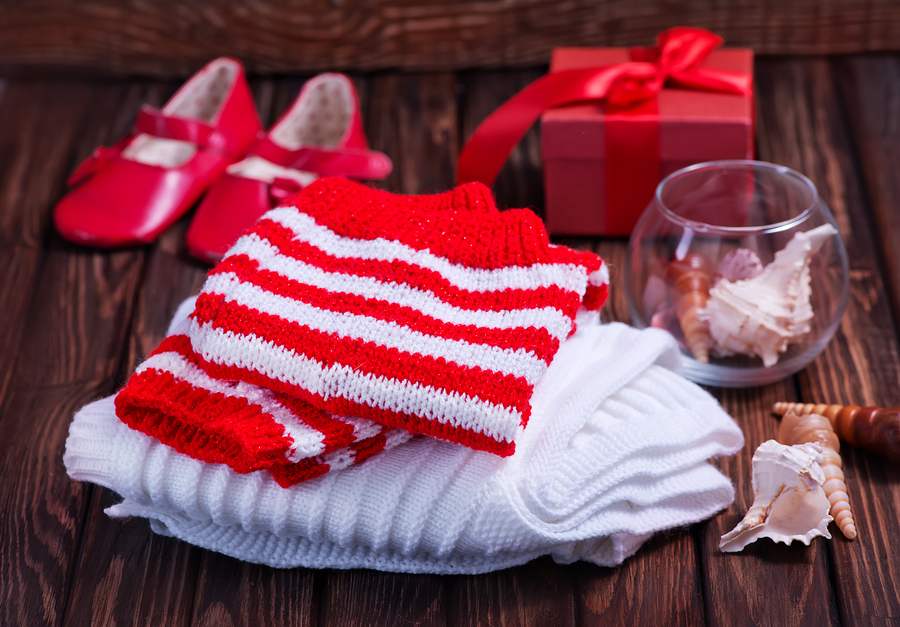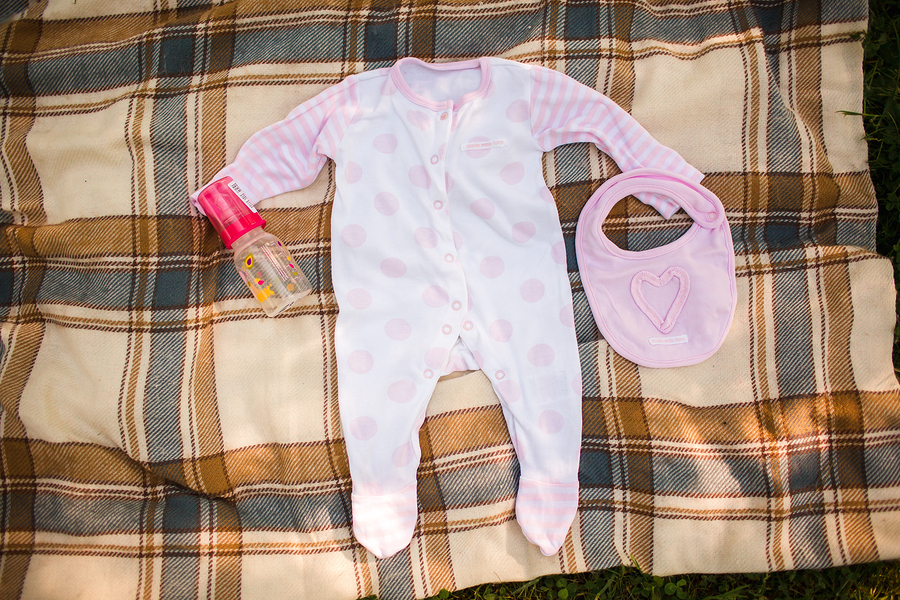- Make It Yourself Lavender Heart-Shaped Bath Bombs!
- 20 Things You Never Knew About “Down There”
- 12 Best Foods For Those Suffering From Arthritis Pain
- 12 Personal Hygiene Mistakes Almost Everyone Makes (Mom Never Told You About #4!)
- 15 Medicinal Plants And Herbs From The Cherokee People
- 12 Mind-Blowing Benefits Of Drinking Coconut Water During Pregnancy
- 12 Outstanding Winter Foods That Won’t Fatten You Up Like A Christmas Turkey
Why You Should Chose Organic Baby Clothes (Even Budget-Tight Moms Can Do This!)

Photo credit: bigstock.com
Everyone looks forward to the birth of a new baby, whether it’s your first or your sixth. Some moms are lucky enough to get plenty of new clothes from friends, family, co-workers or simply by shopping for themselves. Other moms have kept clothes from their previous babies, so they have plenty of hand-me-downs.
However, whether this is your first or your last baby, perhaps you have considered going all out and using only organic baby clothes. You want your baby to be as natural and healthy as possible so you breastfeed; give them only fresh, organic food as they grow; you avoid plastic as much as possible and do mommy and me yoga programs most likely, so organic clothing only makes sense, right?
We know what you are thinking: “I would love to, but what about the price?” What if we were to tell you that you can get organic clothes for your baby at a terrific price? Interested? Of course you are! Keep reading! We are going to tell you exactly how you can do this.
First off, although cotton clothing is great for babies, did you know that cotton is one of the most heavily sprayed crops in the world? A great deal of cotton is also GM, so while you aren’t eating it, this still means that it gets plenty of pesticide and herbicide spraying, and this makes insecticides a natural part of the fabric when the genes are modified. This is not good. Some people have stated that they noticed their babies have skin issues with certain types of clothing, and it is possible that pesticides, herbicides, or the GM issue was at the root of the problem.
Babies have very delicate skin, and when you consider that cotton is sprayed with literally a dozen different pesticides, most of which contain known carcinogens, it’s easy to see why you want to go organic.
Second, as if the pesticides and herbicides are not bad enough, cotton is highly processed. It goes through a long procedure to turn raw cotton into fibers that can be used for clothing. Doing this requires a dozen more chemicals, including bleach. Let’s not forget either that almost all children’s clothing not only receives “finishing” chemicals (such as sprays to make the clothing resistant to moths, to make it shiny, or to keep the ends of sleeves or hems from unraveling), but most of them are sprayed with flame retardant chemicals. This might sound like a good thing, but let’s not forget these chemicals include cancer-causing agents such as PBDE’s and other chemicals that interrupt the hormones. This is NOT something you want in your child’s life, to be sure.
Now, we want to note that if for whatever reason you are unable to get organic baby clothes, plain cotton is far better than any synthetic blend. Almost all synthetic fabrics are made with plastic, petrochemicals, and other chemical compounds that are far worse than anything cotton might have been sprayed with. Chose cotton by all means if your only choices are regular cotton and synthetic materials.
Luckily, organic cotton clothing is super popular, and organic cotton farming is coming back as a major crop so this is a great time to be expecting a baby because you should have plenty of natural choices and support for going organic!
Let’s look at how you can have a super organic baby, starting with clothing!
1. Keep It Simple
This is difficult to do, especially when it is your first baby or your first baby of the opposite sex of your other baby (for example, if you have two boys, but this time you are having a girl). It is easy to get caught up in all the cute choices that are available; however, if you have had children before, you know that most parents buy or receive far more clothing than their children can use. When talking about newborns, your baby will outgrow everything long before they wear them out, so while it might be cute to have 30 different outfits, chances are you will never even use half of them. Ten to 14 outfits is usually plenty. By buying only this amount, you can spend money on more quality, organic clothing. You might want to throw in a few more onesies or hats, but consider your newborn’s wardrobe carefully. Do you really NEED six coats in one size? If you are interested in which brands are best, start off with Under the Nile, Burt’s Bees Baby, and L’ovedbaby. There are a great many more brands, but these are good places to start.
Continue to Page 2

Photo credit: bigstock.com
2. Used Natural Fiber Clothing
While cotton is treated with a great many pesticides, herbicides, and other chemicals, some of the residue is removed once it is made into clothing. Some, not all. This is where buying second hand clothing, blankets, and other items is a real bargain. Not only is this the environmentally friendly way to shop, but these items have been washed numerous times, so any remaining pesticide residue should have been removed in the process. Look for natural fibers such as cotton, silk, hemp, linen, cashmere, and wool. Synthetic fibers are synthetic, and there is nothing that can be “washed out” of them. Tt’s what they are made from, so avoid these at all costs.
3. Ask For Hand-Me-Downs
If you have family, friends, or co-workers who have had a baby in the not-too-distant past, chances are that they still have their newborn clothing in a box somewhere. Don’t be ashamed to ask if they have any plans for those items. You can look through the box and remove anything that will work for you, and save some serious bucks at the same time.
Of course, in a perfect world, all baby clothing would be organic. In fact, all clothing, period, would be organic, but the truth is that this is not the type of world we live in. If we did live in a perfect world, we wouldn’t be bombarded with plastic baby toys, plastic car seats, plastic bibs, and hemp would be legal.
READ ALSO: 12 Best Natural Toys for Children
In the meantime, why not do what we can to help save the environment and protect our babies by choosing natural, organic fibers and going second hand whenever possible?
References:
































